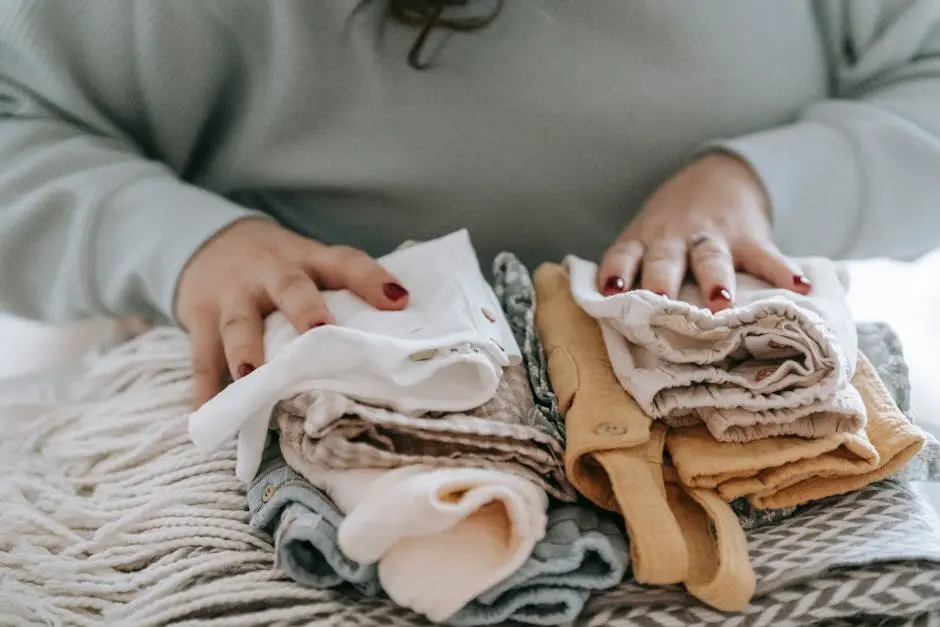
Introduction to Organic Baby Clothing
Welcome to the world of organic baby clothing! Organic baby clothes are made from natural materials grown without the use of harmful chemicals, pesticides, or synthetic fertilizers. They are not only gentle on your baby’s delicate skin but also better for the environment.
Choosing organic baby clothing means opting for garments that are free from toxic substances, making them safer for your little one. These clothes are often made with high-quality organic cotton or bamboo, ensuring that your baby is cozy and comfortable all day long.
Organic baby clothes prioritize sustainability and ethical production practices. By selecting organic pieces for your baby, you are promoting a greener and healthier future for the next generation.
The world of organic baby clothing goes beyond just fashion; it represents a commitment to a cleaner, safer, and more eco-conscious way of dressing your little one. Let’s delve deeper into what sets organic baby clothes apart from regular baby garments.
Fabric Quality and Safety
One of the key distinctions between organic baby clothing and regular baby clothes lies in the fabric quality and safety standards. Organic baby clothes are crafted from natural fibers sourced from organic farming practices, ensuring that no harmful chemicals come into contact with your baby’s skin.
The use of organic cotton, bamboo, or hemp in organic baby clothing offers exceptional softness and breathability, ideal for a baby’s sensitive skin. These materials are free from synthetic dyes and finishes, reducing the risk of allergies and skin irritations.
When you choose organic baby clothing, you are prioritizing your baby’s well-being by providing them with garments that are gentle, non-toxic, and hypoallergenic. This commitment to fabric quality and safety sets organic baby clothes leagues apart from their conventional counterparts.
By embracing organic baby clothing, you are not only ensuring your baby’s comfort but also contributing to a more sustainable and environmentally friendly approach to apparel production. Now, let’s explore how the production process further highlights the differences between organic and regular baby clothes.
Production Process
The production process of organic baby clothing is meticulously designed to minimize environmental impact and uphold ethical standards. From the cultivation of organic fibers to the manufacturing of garments, every step follows strict guidelines to ensure sustainability and eco-friendliness.
Organic baby clothing manufacturers prioritize eco-conscious practices such as using water-based dyes, recycling wastewater, and reducing energy consumption during production. These efforts not only protect the planet but also create a healthier and safer manufacturing environment for workers.
With a transparent and sustainable production process, organic baby clothing brands offer full traceability, allowing consumers to know exactly where and how their baby’s clothes are made. This transparency builds trust and confidence in the quality and ethical values of organic clothing.
By understanding the meticulous journey from farm to wardrobe, you can appreciate the dedication and care put into creating each piece of organic baby clothing. The production process exemplifies the commitment to sustainability and social responsibility that defines organic baby wear.
Environmental Impact
The environmental impact of organic baby clothing is significantly lower compared to conventional baby garments. Organic farming practices promote biodiversity, reduce water consumption, and eliminate the use of toxic chemicals that can harm ecosystems.
By choosing organic baby clothes, you are supporting sustainable agricultural methods that protect soil health and wildlife, preserving natural resources for future generations. This eco-friendly approach ensures that your baby’s clothing choices have a positive impact on the planet.
Organic baby clothing is part of a larger movement towards sustainable fashion, encouraging responsible consumption and production habits. By opting for organic options, you are advocating for a greener and cleaner fashion industry that values both people and the planet.
Each organic baby outfit you select is a small but impactful choice that contributes to a more sustainable future. The environmental benefits of organic clothing extend far beyond the nursery, shaping a better world for all children to grow up in.
Benefits for Baby’s Skin
The benefits of organic baby clothing for your little one’s skin are numerous and profound. Organic fabrics are free from harsh chemicals and pesticides, reducing the risk of skin irritation, rashes, and allergies that can be triggered by conventional clothing materials.
The soft and breathable nature of organic cotton and bamboo fabrics keeps your baby comfortable and cozy throughout the day, allowing their delicate skin to breathe and remain irritation-free. This natural comfort is a hallmark of organic baby clothing.
Organic baby clothes are often hypoallergenic and gentle, making them ideal for babies with sensitive skin conditions like eczema. The purity and softness of organic fibers ensure that your baby experiences the utmost comfort with each wear.
Choosing organic baby clothing is not just about fashion; it’s a conscious decision to prioritize your baby’s skin health and overall well-being. By dressing your little one in organic garments, you are nurturing their skin with pure, chemical-free fabrics.


